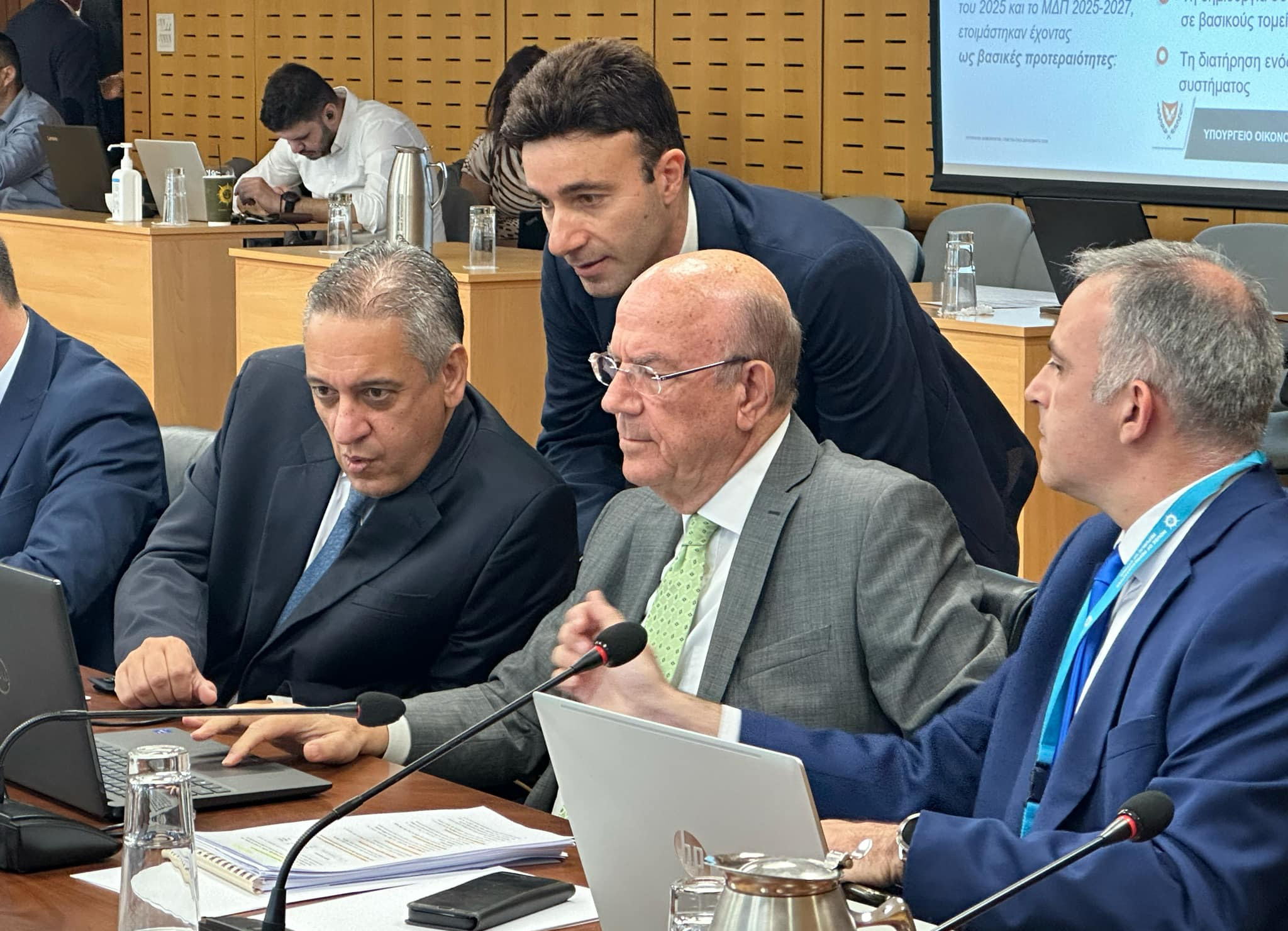Significant external and internal risks to the economy were highlighted by Finance Minister Makis Keravnos on Monday during the presentation of the 2025 state budget at the House finance committee.
Despite the positive economic outlook, the degree of uncertainty remains high, the minister told MPs.
In spite of the “major challenges” facing the global economy – due to the ongoing war in Ukraine and the expanding conflict in the Middle East – this year would close out with a GDP growth rate of 3.7 per cent.
Under the ministry’s baseline macroeconomic scenario, in 2025 GDP is forecast to grow by 3.1 per cent. Meantime inflation is expected to drop to 2 per cent, and unemployment to 4.8 per cent.
For fiscal year 2025, the government intends to spend €6.32 billion overall on welfare. This includes €2.7 billion on healthcare benefits, €749 million on social benefits, €611 million for the Guaranteed Minimum Income, €396 million on child benefits, and €277 million on housing benefits.
Keravnos stressed the importance of maintaining a surplus in the fiscal balance, with the surplus projected to reach 2.7 per cent of GDP by 2025.
He also prioritised reducing public debt to 60 per cent of GDP by 2025, down from 68.9 per cent in 2024.
Other key priorities in the budget include the green transition, digital reforms and necessary structural adjustments.
The main risks mentioned by Keravnos include non-performing loans from previous years, which he said continue to burden public finances, and the significant deficits in the pension funds of semi-governmental organisations (SGOs) and local authorities.
Collectively, 32 of these pension funds are in the red to the tune of €500 million. As far as SGOs go, the Cyprus Broadcasting Corporation poses by far the biggest problem with a pension fund deficit of €123 million.
Further concerns were raised about potential compensation claims worth tens of millions of euros from court rulings, as well as potential EU fines for non-compliance with environmental directives, such as those related to urban wastewater management.
Another significant risk relates to the developments at the Vasiliko gas terminal. Potential compensation claims – from the ex-contractor – that the Republic could face may amount to €529 million.
However, Keravnos said that recent discussions with the European Investment Bank (EIB), the European Bank for Reconstruction and Development, and the European Commission had been positive, adding that if the Vasiliko projects proceed, Cyprus would not be required to repay the funding received.
He was referring to the €68 million of the EU grant already disbursed to Cyprus for the LNG project at Vasiliko. The total grant pledged is €101 million.
Keravnos also addressed the ongoing need to fund the state health services or Okypy, expected to run a deficit of €95 million in 2024.
He said that the annual wage burden for the organisation amounts to €300 million, adding that the situation is being closely monitored.
Regarding the public sector payroll in general, the minister said it remains a source of concern. In particular, the government would initiate a round of discussions to see how the Cost of Living Allowance might be “rationalised”.
Geopolitical risks from the regional crisis, increased shipping costs, and the financial impact of rising migrant flows were also mentioned, with migration-related spending estimated at €204.5 million for 2024.
External risks such as climate change, natural disasters, compensation to farmers, and the need to purchase water due to droughts were also listed as challenges.
For their part, opposition MPs highlighted that although the macroeconomic data look sound, people continue to feel squeezed by the high cost of living.
Akel’s Aristos Damianou said that although the government has the resources available it is not adequately supporting those in need.








Click here to change your cookie preferences